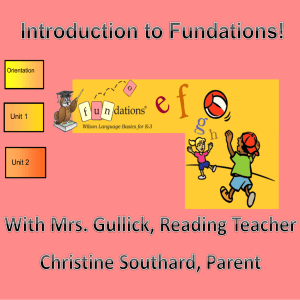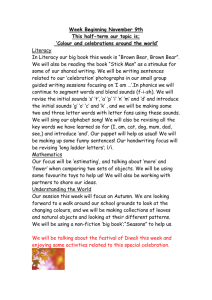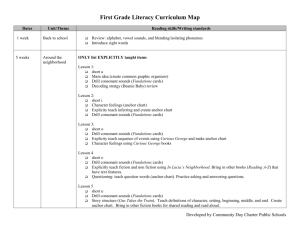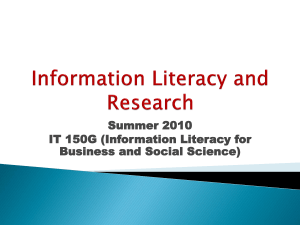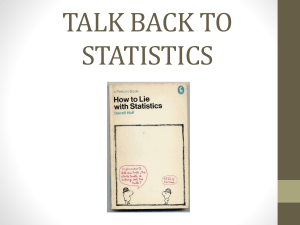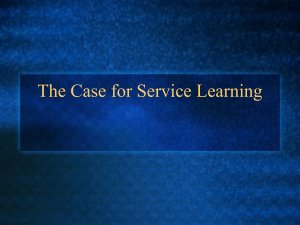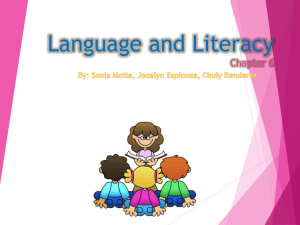Welcome to: back to School Night Room 4 Kindergarten
advertisement
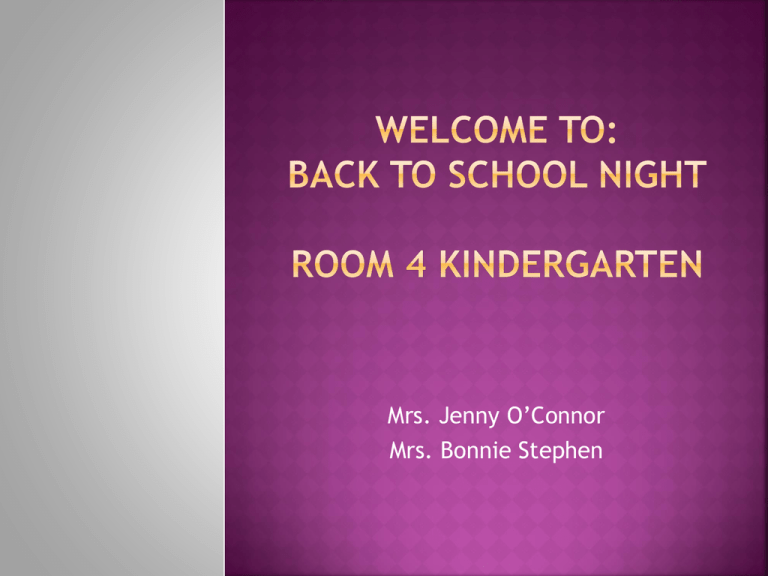
Mrs. Jenny O’Connor Mrs. Bonnie Stephen Literacy: FUNdations: -This is our phonics and word work program. Students develop phonemic awareness which helps them to identify sounds and words that rhyme. FUNdations will also help the students with letter formation. Reader’s Workshop: -Shared Reading, Literacy Centers, Mini-lessons, Guided Reading, Independent Reading, Read Aloud Writer’s Workshop: -Progression from oral storytelling (personal narrative) to drawing and labeling, and then to writing sequenced narratives and non-fiction Identify 26/26 upper and lowercase letters Letter sounds – 20 initial consonants sounds, 5 short vowels Sight words – 30 Concepts of Print – knowledge about books – front/back, left-to-right reading, spaces between words, periods, title & author, words tell the story Story Retell – character, setting, sequence, and problem Comprehension – connection to self, making predictions Development Reading Assessment (DRA) level 4 Writing – all upper and lower case letters, first and last name, invented spelling, consonant vowel consonant words, spacing, periods, writing a sentence Mathematics Our program is based on Math Investigations by TERC which allows students to develop their own mathematical reasoning and use communication in small groups and individually to build skills. ID 4 basic shapes (circle, square, triangle, rectangle) Rote count to 100 Count with 1-1 correspondence to 15 Make sets of objects 0-10 Patterns – ID, copy, extend & create ABAB ID and write numerals 0-10 Understand and use positional words (on, in, in front of, behind, under/below, above, next to) Understand and use ordinal numbers 1st-5th and last Count by tens to 100 Estimate number of objects (no more than 5 off) Describe temperature (hot, cold, comfortable) Describe size (bigger, smaller, same) Describe weight (heavier, lighter) Describe length (longer, shorter, equal) Compare sets of objects (more, less, same) Make and explain a simple graph Add (up to 6) using concrete objects Subtract (up to 6) using concrete objects Data: collect, record, report info pertaining to real life Fraction – whole/half Science The five senses and their use in observation Observable properties of matter Living and non-living things Classification and comparison Measurement and use of simple tools Magnets Weather and seasons Animal homes The use of human made materials to improve life (particularly our houses) There will be 2 Field trips (to Eli Whitney Museum & to the Maritime Aquarium) and 1 in house visit from the Maritime Aquarium. Social Studies: Our social studies program focuses on the role of family, neighborhood, and community. Students also learn about the diverse cultures that make up our school. A school-wide C.A.R.E.S. policy (cooperation, assertion, responsibility, empathy, and self-control) is taught and enforced throughout each grade. CARES begins at the beginning of the school year with forming the rules in order to become a responsible member of the classroom and school community. Beginning next week (week of September 26) Daily homework: READ, READ, READ. Your child will be required to read for 15 minutes each night. A reading log will be sent home Monday and should be filled out together and returned on Friday. All homework should be returned in their folder. In addition to reading, your child will have homework 3-4 times per week in other academic areas No homework on Fridays K focus: To learn to express feelings and resolve social conflicts in peaceful ways. To develop the daily habit of reading and an enjoyment of this routine. To develop early literacy skills At home: Read to and with children 15-30 minutes daily Spend time daily talking about books you’ve read together and completing reading log. Discuss and support classroom rules. Support children in practicing constructive conflict resolution Visit the public library on a regular basis. Attend school wide and classroom literacy events Students: Help create and follow classroom rules Read at school and at home. Talk to friends and teachers to solve problems Room 4 Classroom Rules: Share and care for our materials (books, toys, writing instruments, work being completed) Use kind words (such as please, thank you, asking are you ok? May I have that? You’re welcome) Use an inside voice in the classroom (especially while working) Use walking feet (control of your body/be safe) I promise to try my best! Briggite Moore (Brielle’s mom) will be our class parent this year. We have a peanut allergy in Room 4. Please no peanut snacks or peanut butter in home lunches! Birthday policy: your child can bring in a favorite book from home to read to the class! Due to allergies and our school wide wellness policy, no baked goods please! In your packet: Daily schedule (mixed up Monday & Tues-Fri) Specials Schedule School family compact – grade K Curriculum overview Copy of the Literacy/Math Walkout Skills Newsletter Feel free to contact me anytime: oconnorj@ces.k12.ct.us or 203-330-6775 X7404
